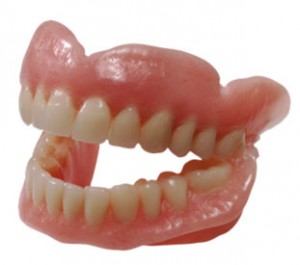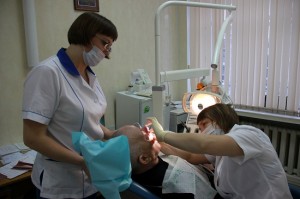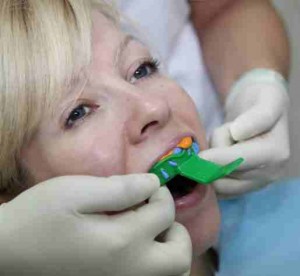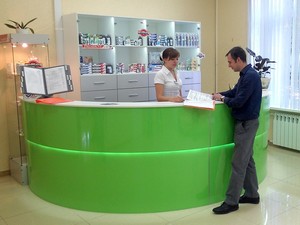Dental prosthetics for seniors

The absence of one or more teeth in the oral cavity has a negative effect on the entire dentition, on the functioning of the digestive system and the whole organism.
In the absence of at least one tooth, the load on the other teeth changes, their wear is enhanced, as a result of inflammatory processes, the risk of developing periodontal diseases increases.
Therefore, with the loss of teeth, the first task is to restore them.
People of retirement age are most often at risk for tooth loss. But dental prosthetics is quite an expensive pleasure, especially for those who have a pension - the only source of income.
In Russia, there is a system of preferential dental prosthetics for pensioners.
If the regional program does not work in the city where the pensioner lives, then the local administration bears the costs of providing preferential prosthetics.
The disadvantage of the program is that the beneficiary does not have the opportunity to choose the clinic where he would like to receive the service.
Only municipal dental institutions fall under the program.
At the same time, a contract for the provision of preferential services must be concluded, where their cost, terms and warranty are prescribed.
Who benefits
Based on the law on social protection of the population, the following categories of citizens have the right to preferential prosthetics:
- Participants of the Second World War.
- Disabled children under the age of majority.
- Disabled for health reasons.
- Not working pensioners.
- Veterans of labor.
The right to preferential prosthetics also have:
- People whose per capita income is two times lower than the living wage can count on benefits from dental prosthetics.
- Persons who stood in line for a free installation of prostheses as of January 1, 2005.
- Participants in the aftermath of the explosion at the Chernobyl Nuclear Power Plant.
Additional categories of citizens are determined by a special decision of local authorities.
Social protection authorities can obtain information on the categories of citizens included in the social program.
Who else can get the benefits

In some regions, free prosthetics are provided:
- Disabled people and WWII veterans.
- A disabled person with a documented group.
- To the workers of the rear.
- Victims of repression and rehabilitated.
- Pensioners of old age.
How is the priority distributed?
Different regions have their own order of priority for providing free prosthetics:
- For example, for residents of St. Petersburg, the line for preferential dental prosthetics is distributed approximately according to the following principle: the first in the line are disabled people and veterans of the Second World War, then disabled people for health, followed by pensioners and labor veterans. The last three categories of citizens can be attributed to the second stage.
- The liquidators of the consequences of the Chernobyl accident can also receive discounts on prosthetics in the amount of 50% of the total cost.
- In Moscow and the region, for example, free dental prosthetics is provided to pensioners if they do not work. There is a separate queue for this category of citizens.
- Preferential dental prosthetics are also provided for military pensioners and employees of the Ministry of Internal Affairs. The procedure for providing benefits must be found in the competent authorities.
How to use the service
To obtain the possibility of prosthetics on preferential terms, the pensioner needs to contact the social protection authorities at the place of registration.
Each region has developed a specific procedure for placing on a preferential line.
Dental prosthetics for pensioners is free of charge only in state clinics.
Currently, some private clinics provide a discount on the service if there is a document from the social security authorities.
Is there a similar service in a particular clinic, and it is better to learn about the conditions for its provision directly in the institution itself.
To account for beneficiaries, medical institutions provide for the presence of two phases:
- First of all, participants of the Second World War, heroes of the USSR, as well as minor children with disabilities are prosthetized.
- Secondly, the service is provided to people with disabilities due to health reasons, old-age pensioners and labor veterans.
Free types of services
Any government clinic with a dental profile is required to provide free medical care to the patient, if he has an insurance medical policy.
In this case, the provision of free services is provided:

- Consultation with a dentist, which includes examination of the patient and recommendations.
- Remediation of the oral cavity.
- Treatment of caries, including various tooth injuries, root canal filling.
- Treatment of inflammatory processes in the oral cavity.
- Removal of dental plaque.
- Prosthetics of certain categories of citizens.
Previously, free dental prostheses were only installed in state dental clinics.
You can also contact the municipal dental clinic if you need to repair the prosthesis of any complexity or replace it.
What is not included in the program
The following types of services are not included in the social program of free prosthetics for pensioners:
- Dental prosthetics with ceramics and cermets.
- The manufacture and prosthetics of structures made of precious metals and other expensive materials, as well as the repair of such prostheses.
- Installation of implants.
- The manufacture and repair of orthodontic appliances designed to treat periodontal disease and prevent increased tooth abrasion.
Installation conditions for constructions, prosthetics of which are not included in the social program:
- In the presence of an allergic reaction or oncology of the digestive system organs in the beneficiary. In this case, it is possible to manufacture a clasp prosthesis from more expensive materials.
- The beneficiary can pay the difference between the cost of manufacturing a prosthesis from expensive material minus the preferential cost of installing a budget design.
The availability of preferential conditions allows the pensioner to significantly save on dental prosthetics and establish the best designs according to his desire.
When can I get the service out of turn
Preferential prosthetics can be performed without a queue in the following cases:
- In the presence of cancer in the maxillofacial area of the head.
- If a recipient is diagnosed with an oncological disease of the digestive system.
- In the presence of a malignant disease of the blood.
- After a complex operation on the gastrointestinal tract.
- In the absence of teeth as a result of serious injuries.
How to get a service
You must come to the department of social protection at the place of registration for queuing.
You must have the documents with you:
- Passport.
- Statement.
- Certificate of residence.
- A certificate issued by a clinic confirming the need for prosthetics.
- Medical policy.
- Pensioner's ID.
How is
For free dental prosthetics, the beneficiary is issued a coupon.
The service must be received within one month in the clinic, which is indicated in the direction.
After the conclusion of the contract at the initial appointment, an examination and preparation of the patient's oral cavity for the installation of structures is carried out.

- Casts are taken, the color of teeth of future prostheses is determined.
- At this stage, the pensioner can express his wishes, which will be taken into account when installing structures.
- After the prostheses are ready, they are tested, and then installed.
In addition to prosthetics, a pensioner can use services such as:
- Caries treatment.
- Removing broken or diseased teeth
- Treatment of periodontal disease.
Dentures are made from materials for which funds are allocated from the budget.
If the beneficiary has an allergy to the material, on the basis of the decision made by a special commission, the pensioner has the right to install a structure made of more expensive material, while paying the difference in the cost of prosthetics.
Video: “How reliable are removable dentures?”
Denture Warranty
The structures installed under the social program are covered by warranty service for twelve months.
If the prosthesis breaks down, then, on the basis of a medical report, repairs are made, or new designs are made.
Repair or manufacture of a new prosthesis is free of charge only if it is established that the prosthesis has become unusable due to the fault of the clinic.
Compensation

In some cases, a pensioner for some reason is not able to perform prosthetics on preferential terms, for example, he cannot wait for the line or the service he wants to receive is not included in the program.
In this case, a pensioner can restore lost teeth by contacting a private clinic.
To do this, take the following actions:
- Clarify whether the clinic will issue a certificate to compensate for the costs of treatment.
- Make a payment for a working relative who can receive a tax deduction of 13% of the amount spent on installing prostheses.
After dental prosthetics, it will be necessary to provide the following documents to the tax authorities:
- A copy of the clinic’s license.
- A completed declaration.
- The contract for the provision of prosthetics services by the clinic.
- Payment documents.